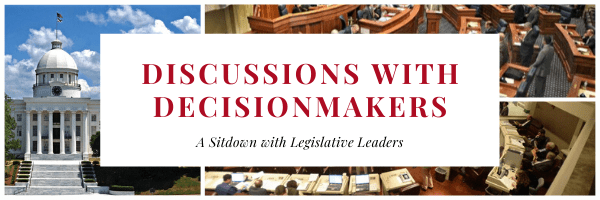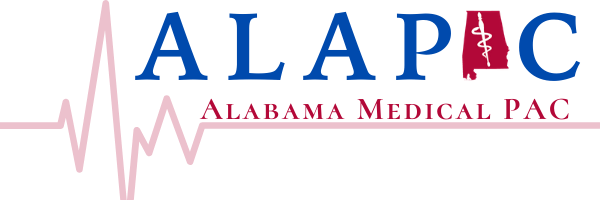Discussions with Decisionmakers: Barry Moore

1. Please tell us a little bit about yourself – Primary occupation? Interests? Hobbies?
I am Barry Moore from Enterprise, Alabama. I grew up on a farm in Coffee County. In 1992 I graduated from Auburn University with a degree in Agricultural Science. Since 1998, my wife Heather and I own and operate Hopper-Moore Inc., a waste-hauling and demolition company. I served in the Alabama House as District 91’s State Representative for 8 years. During that tenure I served as Chairman of Military and Veteran Affairs and several other committees. Heather and I have four children- Jeremy, Kathleen, Claudia and Jeb.
2. What first prompted you to consider running for your House District seat and how do you believe your background and experiences help you serve in the legislature?
I have four fundamentals that guide all aspects of my life: Faith, Family, Finance and Freedom. I felt this has been a calling from God and I have answered that call. Our nation must have leaders with the courage to stand and serve with humility. I am a veteran and the only veteran serving in the Alabama delegation. I ran for Congress in 2018 against an incumbent. It laid the ground-work for 2020 when Congresswoman Roby decided to retire. With much prayer I entered the race along with seven other candidates and by the grace of God, I won. My experience in the Alabama House gave me a track record of how I voted and my work ethic. I was voted the most conservative dependable vote and I will continue to serve my constituents in the same manner.
3. Can you tell us a little about some health-related issues important to your district and your constituents?
Right now, protecting our rural hospitals is very important to District 2. These hospitals are front line to so many different health care emergencies to include CoVid and Mental Health.
4. If you could change one thing about our current healthcare system, what would it be?
I would encourage more physician-patient confidentiality and keep the government out of the decision-making process that may place unnecessary pressure upon the patient or the physician. In other words, let our doctors do their job without the interference of the government.
5. How can the Medical Association – and physicians statewide – help you better address our state (and nation’s) current health challenges?
Continue to work together with an open line of communication and dialogue that effectively serves the people.
6. What’s the one thing you would like to say to physicians in your district?
Absolutely want to say a huge THANK YOU for the incredible job you are doing. The year 2020 has been a year like no other and without our physicians working the way they have, especially the front-line physicians, working directly with CoVid patients, our state would have suffered even greater. My office will always be grateful and open to MASA and look forward to working together.
Posted in: Advocacy
Leave a Comment (0) →



